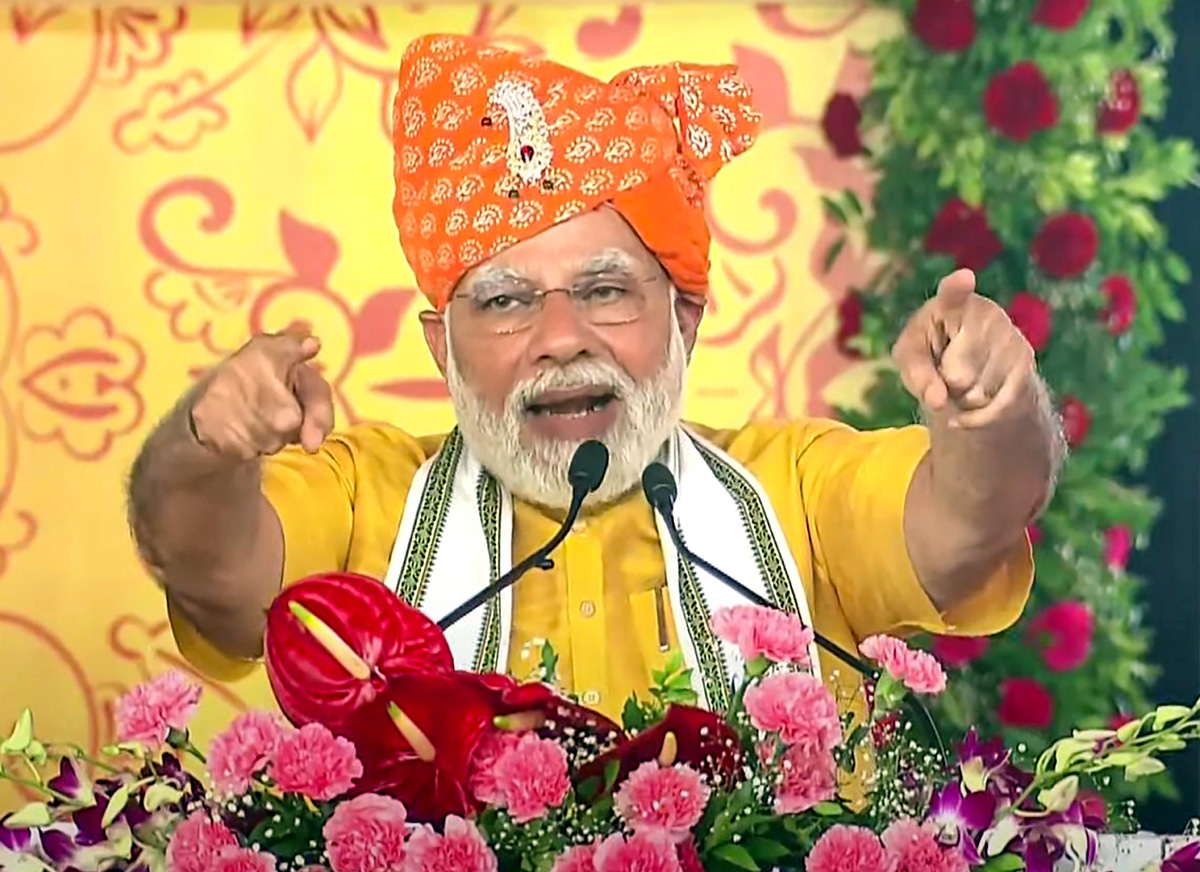
HIMMATNAGAR, (Gujarat), July 28: Prime Minister Narendra Modi on Thursday said that ethanol blending with petrol, which was 40 crore litres before 2014, has now gone up to 400 crore litres now.
The blending of ethanol with petrol has also increased the income of farmers, he said addressing a large gathering after inaugurating various projects of the Sabar Dairy near Himmatnagar town in Sabarkantha district of north Gujarat.
The Sabar Dairy is a part of Gujarat Cooperative Milk Marketing Federation Ltd (GCMMF), which makes and markets a whole range of dairy and milk products under the Amul brand.
Modi said sustained efforts by his Government, since it came to power in 2014, to increase the income of farmers during the last eight years are now showing results.
The Government’s decision to mix ethanol with petrol has helped farmers increase their income as ethanol is derived from farm produce like sugarcane and maize, he said.
“Today, the ratio of ethanol blending with petrol is over 10 per cent. Ethanol comes from sugarcane and maize. Before 2014, ethanol blending with petrol was less than 40 crore litres. Today, it has gone up to 400 crore litres,” Modi said in his address.
Apart from farming, the promotion of allied business activities like cattle-rearing, horticulture, fisheries and honey production has also helped farmers in increasing their income, he said.
“The income of farmers has increased today because of the Centre’s sustained efforts during the last eight years. This has benefited landless and marginal farmers the most,” the PM said.
“Our strategy to focus on alternative sources of income is showing results. For the first time, the turnover of Khadi and Village Industries has crossed Rs 1 lakh crore mark,” he said.
The Khadi and Village Industries sector has generated employment for 1.5 crore people in villages in the last eight years, he said.
As the Centre is also working on reducing the agricultural cost, it has not imposed any price hike on fertilisers despite the fact that global prices have gone up manifold in recent times.
“We import urea from other countries. Though the global prices have gone up manifold in recent times, we have not passed on that burden to farmers. The government pays Rs 3,500 for a 50 kg bag of urea. But, we sell it to farmers for just Rs 300,” Modi said.
The subsidy burden of Rs 500 on the central government on a bag of DAP fertiliser has now gone up to Rs 2,500 due to the exponential price hike in the international markets, he said.
Modi also said his government decided to start a movement to ban single-use plastic as he had seen the ill-effects of plastic material when he was the chief minister of Gujarat.
“During cattle health fairs, doctors used to remove 15 kg to 20 kg of plastic waste from a cow’s stomach. That is the reason why we have initiated this movement to ban plastic,” he said. On the occasion, Modi remembered the Pal-Chitariya massacre and tribal freedom fighter Motilal Tejawat, who had led a rebellion against the British rule.
In retaliation, the British had killed over 1,000 tribal insurgents in Sabarkantha district’s Pal-Chitariya and Dadhvaav villages in 1922.
“For the first time, our country’s daughter belonging to a Scheduled Tribe community has reached the top constitutional post. The people of the country made Droupadi Murmu India’s president. This is a matter of great pride for all 130 crore citizens,” Modi said.
“The dream of having an inclusive democracy, as seen by our great ancestors who had sacrificed their lives for the country, is now coming true,” he added.
Before his address, Modi visited the newly inaugurated facilities of Sabar Dairy and also interacted with some progressive women cattle-rearers of the region.
He inaugurated a Rs 305 crore milk powder plant of the Sabarkantha District Co-operative Milk Producers’ Union Ltd, also known as the Sabar Dairy, located near Himmatnagar town.
The plant has the capacity to produce 120 metric tonnes of milk powder per day.
He had also e-inaugurated the Sabar Dairy’s Rs 125 crore milk processing plant and performed ground-breaking for a cheese plant, which would come up at a cost of Rs 600 crore. (PTI)

